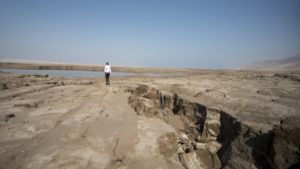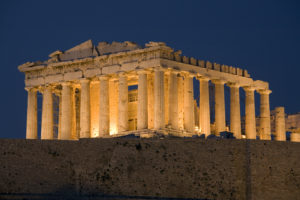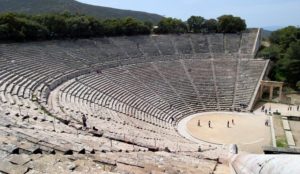This story caught my eye, not because it surprised me, but because it portends potential tragedy for one of the world’s great treasures.
And I’ve had the high honor and pleasure of seeing it up close.
I refer to the Dead Sea, a small inland lake at the mouth of the Jordan River between Israel and Jordan.
I got to swim in the Dead Sea in May and June 2009. Take it from me: You haven’t lived until you’ve taken a dip in water that is 10 times saltier than the ocean, and which contains natural oil that prevents your skin from wrinkling up the way it does in normal salt or fresh water.
Public TV’s NOVA documentary series is going to look at the future of the Dead Sea, which according to the producers of the program isn’t looking too great … at the moment!
http://www.pbs.org/wgbh/nova/next/earth/dead-sea-dying/
According to NOVA: “The lake has a storied place in history. The biblical Sodom and Gomorrah reportedly overlooked its shores, while King David allegedly sought relaxation there in 1000 BCE. A few paces away, on the mountain top of Masada, Herod the Great built palaces, and in 73 CE, a thousand Jewish zealots chose death in their fortress over surrender to the Romans. Centuries later, Byzantine monks lived in monasteries overlooking its shores, and Crusaders built their castles.”
That was then. The future looks bleak.
The lake levels are receding. We were told that while we swam in the Israeli side of the water.
The culprits are dams, as NOVA reports: “But since the 1960s, the sea has had a more troubled history. That’s when Syria, Lebanon, Jordan, and Israel started building dams and diverting the rivers for drinking, irrigation, and industrial use, the same waters that have been feeding the Dead Sea for millennia.”
The lake has lost about 112 feet in depth; its volume has dropped about 30 percent.
What to do? It’s interesting to me, as NOVA points out, that a joint Israeli-Palestinian environmental group is seeking to call serious attention to the danger of continued depletion of the Dead Sea.
Does the world allow this treasure to disappear? Does it continue to stand by while its water evaporates?
Perish the thought. Perish even the hint of a thought that the world could allow such an international tragedy to occur.
OK, I’m biased. I’m one of those who has enjoyed the water. I’ve slathered myself in that mystery mud the Israelis and Jordanians tell you has restorative qualities. You smear it all over your body, let it dry and then wash it off with fresh water.
I can’t say it made me look younger, but I felt great just being able to say I did it.
Check out the story attached to this blog post. It provides tremendous detail about the ancient history associated with the Dead Sea and the myriad problems that threaten this holy body of water.
The Dead Sea must not die!



